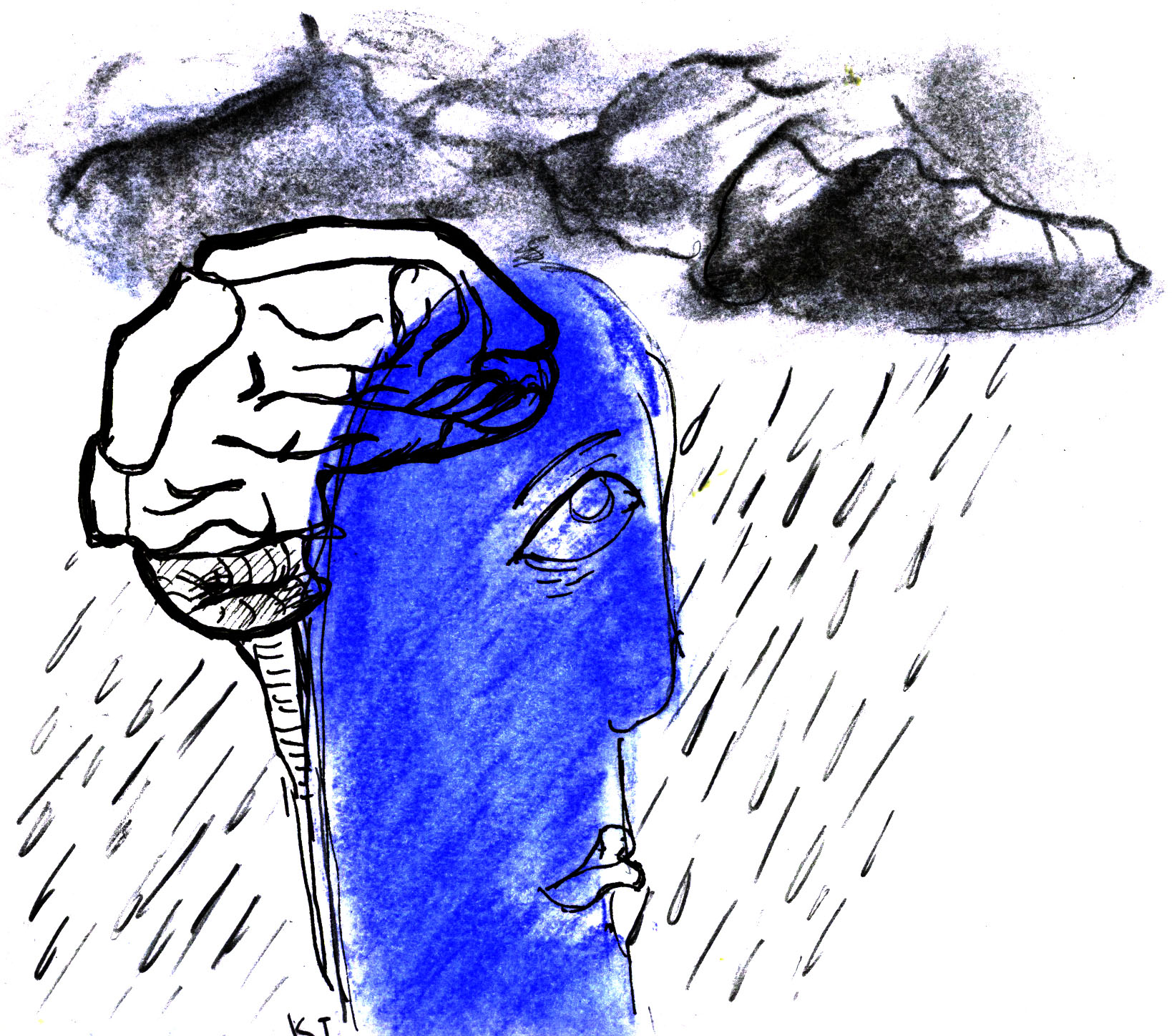
Clinical depression may be linked to decreased right hippocampal volume, according to a recently published study co-authored by Yale researchers.
Researchers from the Olin Neuropsychiatry Research Center in Hartford, the Yale School of Medicine and the University of Texas at San Antonio have found a genetic correlation between recurrent major depressive disorder and reduced right hippocampal volume. The researchers were able to locate a specific chromosome that influences both of these traits, indicating that there may be a specific gene for depression risk. They published their results in the journal Human Brain Mapping online on Oct. 20.
“There’s a genetic link,” said David C. Glahn, psychiatry professor at the Yale School of Medicine and co-author of the study. “It doesn’t have to simply be environment or the stressors that the individual had — there’s also a family predisposition.”
The impetus for the study, according to Glahn, was the research community’s dearth of knowledge about the genetics of depression. He said that research has made strides in learning about the genetics of illnesses such as autism and schizophrenia, but there is still much to be learned about depression.
The researchers began their work in a previous study in 2012 by investigating the behavioral and genetic commonalities in groups of Mexican Americans. The latest study, which was published in October, focused on the hippocampus, as it is often associated with depression.
“Repeated stress episodes, for instance during recurrent depressive episodes, may result in cumulative loss of hippocampal volume if no treatment is provided,” said Poul Videbech of the Glostrup Psychiatric Center in Denmark in a Saturday email to the News. “But it is also possible that some shrinkage of the hippocampus pre-exists before the depression, maybe because of genetic disposition.”
Study researchers conducted psychiatric interviews and used MRI and genetic analyses on 1,286 Mexican Americans from large families in San Antonio, Texas. The results found that a variation on chromosome 18 was associated with rMDD and the reduced size of the right hippocampus.
Experts in the field were interested in the possible role that the hippocampus seems to play in depression, despite its usual association with amnesia, spatial memory and navigation. Yet according to Videbech, patients with depression have shown deficits in memory function, indicating an association between the hippocampus and depression. Glahn also said that depressed people may “over-remember” their bad memories.
“There are many studies showing memory issues in depression, particularly a bias for remembering negative over positive events,” Yale psychology professor Jutta Joormann said. “Being able to remember positive events also plays a big role in how easily people recover from negative affect.”
The size of the hippocampus is also influenced by environmental factors. Glahn, Videbech and Joormann all said that stress exposure can influence the size of the hippocampus, as has been found in studies of patients with post-traumatic stress disorder.
This shrinkage of the hippocampus may be reversible, Videbech said. The hippocampus has the ability to create more cells in a process called neurogenesis, which may bring hope to those who have a genetic predisposition for smaller hippocampi.
“We did a large eight-year follow-up study of formerly depressed patients at my department and demonstrated that the hippocampal shrinkage that was present during the depression had disappeared, probably due to treatment,” Videbech said.
The Yale co-authored study has important implications in the investigation of the genetics of depression, according to the researchers. Glahn said that his team hopes to study the gene in vitro — in a petri dish — and discover if it is part of a network of genes that can be manipulated. Eventually, he said, this work may extend to animal testing.
But one of the most important parts of the study, Glahn emphasized, was the inclusion of a different minority population. Glahn said he worries that psychiatric studies can often target certain groups of people and leave out those that could provide vital information to the world of research.
“One of the reasons that we are working with this population is because they’re an underserved population,” Glahn said. “It’s really important for us when we’re doing research — particularly research that we hope someday will lead to a treatment — that we include everyone.”
According to the study, the researchers defined rMDD as two or more distinct episodes of depression meeting the criteria of the DSM IV —the manual published by the American Psychiatric Association that covers all mental health disorders for both children and adults.







